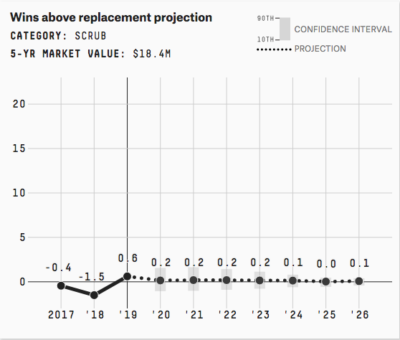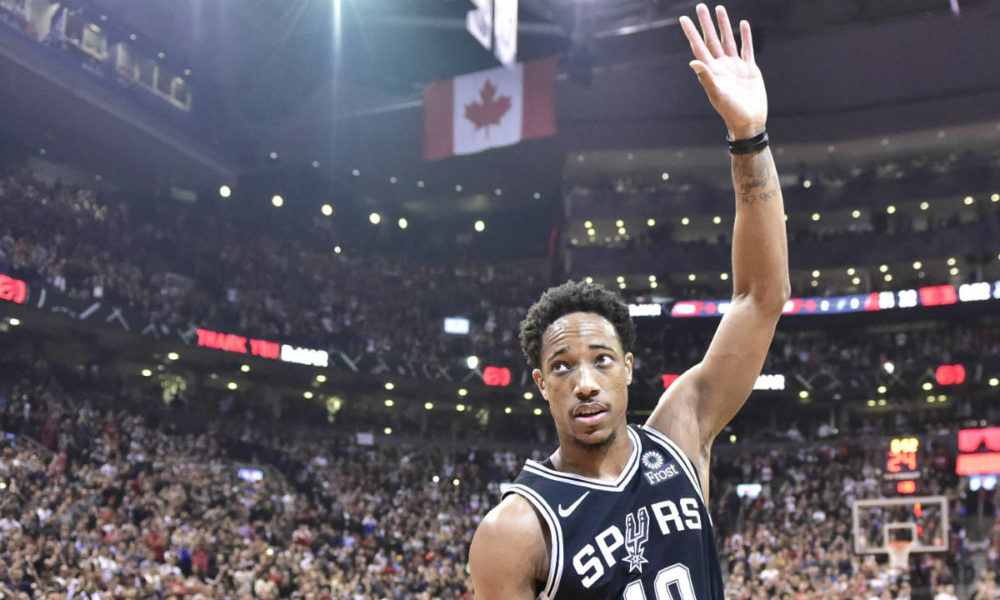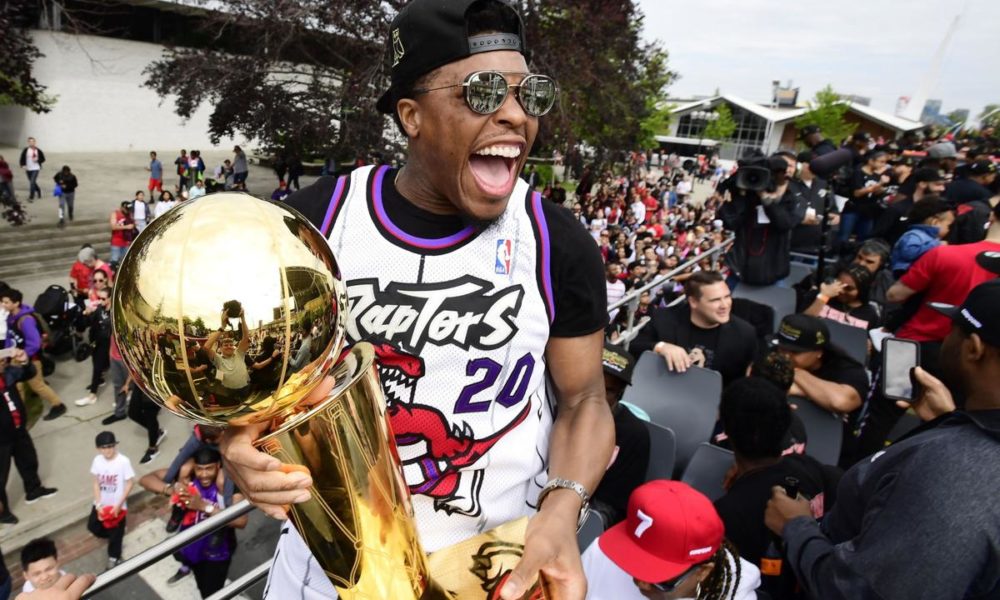Normal Powell is entering his fifth season in the NBA in 2019-20, which is longer than most second-round picks survive in the league. We all know how much circumstance plays a role in player development in the NBA. On one hand, Powell has benefitted from being drafted by a top-tier organization known for its strong player development and culture. On the other hand, the Raptors have had legitimately deep rosters with star-level shooting guards blocking Powell’s path each season of his career. Until now.
It’s easy to say, ‘we know who Norman Powell is at this point.’ He’s a 26-year-old bench player who’s developed into an above-average two-way role player who often forces it on offense but ultimately helps his team win games. Powell has been a significant part of the Raptors rotation for four straight seasons, averaging an underwhelming 7.1 points per game in 16.8 minutes with a 19.4 usage rating throughout his career. However, any true Raptors fan will tell you that Powell has had moments of brilliance in his career, whether it’s the regular season or more likely the playoffs where Powell has helped the Raptors get over the hump and win series’ against the Milwaukee Bucks in 2017 and 2019.

Despite being projected by most experts as well as FiveThirtyEight’s CARMELO projections to make no significant improvement in the coming years, Powell has the potential to be much more than a role player. He has a rare blend of size, athleticism, and shooting ability that theoretically makes him a perfect shooting guard for the modern NBA. The problem is a lack of consistency, which likely comes from a lack of confidence. This season, though, Powell has the opportunity to step into an expanded role and truly showcase his full potential while playing his natural position. And he must, because time is no longer on Powell’s side.
—
Powell was drafted 46th overall out of UCLA in the 2015 draft, his rights (along with the rights to draft OG Anunoby, who went 23rd in 2017) being acquired by Masai Ujiri and the Raptors from the Milwaukee Bucks in exchange for Greivis Vasquez.
Powell spent his first professional season moving between the Raptors 905 of the G-League and the NBA, ultimately landing himself a spot in Dwane Casey’s playoff rotation that same season. Powell averaged 17.8 minutes per game in the Raptors first-round series against the Indiana Pacers and was a part of the franchise’s first run to the Eastern Conference Final that postseason.
Powell began his NBA career playing behind the best shooting guard in Raptors history, DeMar DeRozan. By Powell’s first full season in 2016-17, he established himself as a solid role player with plenty of upside; the kind of athletic shooting guard any team would be happy to draft, especially in the second round.
But Powell, at 6-foot-4, 215-pounds, with a 6-foot-11 wingspan, is exactly that: a shooting guard. He’s not enough of a ball-handler or facilitator to play the point and not big or strong enough to succeed as a small forward (though he has played a lot of minutes at small forward in his career, which should decrease next season). So, behind DeRozan (and then Danny Green) in the depth chart, Powell did what any smart NBA player does under the circumstances: he played the role he was asked to while working on his game to become better each season, learning from the Raptors’ veterans who helped establish an organizational culture that puts young players in the right position to succeed and prepares them to be ready when their time comes.
You could say that Powell has had opportunities to step into an expanded role with the Raptors before, but I would argue it’s more complicated than that. Despite his high usage rating for a role player (19.4), Powell has never had the opportunity to be a full-time starter at his natural position and has consistently entered the season being asked to perform a specific role. Sure, he has had opportunities to step up after someone ahead of him in the depth chart went down with injury or in the playoffs when the team needed a boost — against the Philadelphia 76ers last postseason, for example — but it’s unfair to expect a player who has been doing one thing all season to do another on command. Plus, he has stepped up in certain playoff series’, just not all. He has never had a fair opportunity to make the jump from a role player to a key scorer.
Now, with DeRozan traded away and Green walking in free agency, Powell finally has an opportunity to assert himself as the Raptors starting shooting guard for the first time in his career. However, it won’t be easy: Despite having no proven veterans locked into the starting spot for the first time since Powell joined the Raptors, plenty of young players will be competing for the spot including Fred VanVleet, Terrance Davis, Matt Thomas, and more. Nurse said as much during his sit-down interview with William Lou.
Powell quietly had the most efficient year of his career last season, shooting 48/40/83 with 8.6 points in a simplified role, averaging just 18.8 minutes off the bench. The question is whether or not Powell can remain efficient and consistent in an expanded role, which he has had little opportunity to do in his career. If he can — and if he thrives in a role he has been preparing for his entire career — he will fit perfectly into a starting lineup that projects to have Kyle Lowry, OG Anunoby, Pascal Siakam, and Marc Gasol around him.
The reason Powell is the Raptors X-factor next season is because his play dictates how the rest of the rotation will look. If Powell is able to assert himself as the starting two-guard, the rest of the pieces will fall neatly into place around him. However, if Powell is unable to claim that starting spot — by being inefficient and inconsistent in an expanded role — he becomes an expensive bench player (making over $10 million per season) and the Raptors depth will suffer significantly.
Powell has a scorer’s mentality and is a good 3-point shooter (he shot 40 percent last season), which will make up for the lack of go-to scorers in the starting lineup. Powell is also an extremely good slasher and could benefit greatly from the playmaking of Lowry and Gasol. In terms of rebounding, Powell is a very good rebounder for his position, averaging 4.4 rebounds per 36 minutes last season, and he will be a welcomed addition to a Raptors starting lineup that projects to struggle on the boards. Powell can also defend bigger guards — he can defend one through three effectively — allowing Lowry to defend point guards and Anunoby to take turns defending the stronger, more versatile wings. Plus, if Powell asserts himself as a starter, VanVleet will remain in his role as a sixth man and be the primary facilitator off the bench, which makes the most sense for the team given the lack of playmaking on the bench.
In order for Powell to earn the starting two-guard spot, however, he will need to prove he can be efficient in an expanded role. One of the biggest problems in Powell’s game — aside from the general lack of consistency — is that he often forces the offense when he should defer to his teammates instead. For a blueprint on how to be more effective, Powell should study Green’s lone season with the Raptors, where he fit Nick Nurse’s 3-point heavy offense perfectly by spacing the floor and shooting 11.0 percent of his shots at the rim and 69.0 percent of his shots from 3-point range, with 31.6 percent of his three-pointers being wide-open. In other words, Green rarely forced the offense and instead only shot the ball when he had a good look in a position he was comfortable. Powell, on the other hand, shot a higher percentage of two-pointers (57.5) than 3-pointers (42.5) last season, with just 21.0 percent of his 3-pointers being wide-open. Powell also needs to take better care of the basketball, as his turnover percentage of 13.1 last season was far too high.
Powell may not be as good of a 3-point shooter as Green is, but he will have more open shots next season if he plays with the starters. He needs to understand where his best shots will come from — likely 3-pointers and slashes to the rim in the half-court — and focus on those shots instead of trying to do too much.
Defensively, Powell can be better than both DeRozan and Green. Powell is athletic enough to move quickly both laterally and horizontally, and he has no problem keeping fast players in front of him (which is something Green struggled with throughout the playoffs). Powell’s basketball IQ is good enough that he knows when to help and he has been in the Raptors’ system for long enough to understand how to play team defense. Powell is also strong enough to defend one through three, and with the Raptors preference to switch most screens, Powell makes more sense sharing the backcourt with Lowry than a smaller guard like VanVleet does.
—
Powell needs to prove himself a capable starter come training camp. If he can’t, Nurse will likely start VanVleet at shooting guard and have Powell come off the bench. That will minimize the rebounding in the starting lineup and create more defensive mismatches for the opposing teams to feast on. Plus, the bench will struggle to move the ball without VanVleet facilitating, making it even harder to score with so many non-shooters on the bench.
Most players of Powell’s caliber would have been given an opportunity to show what they can do in an expanded role before their fifth season. Powell, who has played on competitive Raptors teams since being drafted, is yet to have that opportunity, which is why we don’t know what kind of player Powell is. But the 2019-20 campaign will be a make-or-break season for Powell, who has to prove he is an irreplaceable part of the Raptors core moving forward. If he can do that and more, the Raptors might be really good next season. If not, the roster might need some shaking up, and Powell could be the first to go.
Norman Powell is the Raptors X-factor next season.



